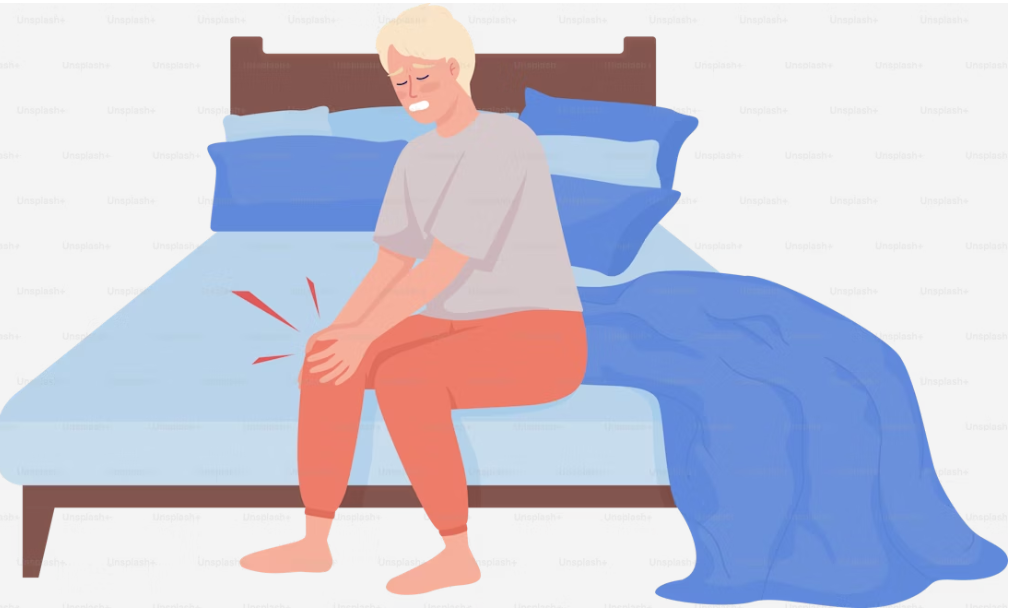Stress is an unavoidable part of life. From deadlines and bills to relationships and personal challenges, it often feels like the world expects us to stay calm and composed while juggling everything at once. But when stress becomes chronic or overwhelming, it doesn’t just affect your mood—it can impact your sleep, immune system, relationships, and even your ability to think clearly.
If you’ve ever asked yourself:
- How can I reduce stress?
- Why can’t I handle stress like others?
- How can I stop being so stressful all the time?
- What are the warning signs I’m too stressed?
- How do I relax my mind when it’s constantly racing?
…you’re not alone.
In this blog post, we’ll break down the causes of stress, how to recognize when it’s too much, and most importantly—how to manage and reduce it naturally so you can get your life back in balance.
How Can You Reduce Stress?
The first step in reducing stress is recognizing it as a physiological and emotional response, not a personal weakness. Your body’s stress response—often called the “fight or flight” reaction—is designed to protect you. But when it’s triggered too often or too long, it becomes unhealthy.
Here are proven, effective ways to reduce stress:
1. Practice Deep Breathing
This is one of the fastest and simplest ways to calm your nervous system.
Try this technique:
- Inhale slowly for 4 seconds
- Hold your breath for 4 seconds
- Exhale gently for 6–8 seconds
- Repeat for 2–3 minutes
This tells your brain that you’re safe and helps slow your heart rate and reduce tension.
2. Exercise Regularly
Physical activity releases endorphins—your body’s natural mood boosters. A brisk 20-minute walk, a yoga session, or even dancing in your room can significantly reduce stress.
3. Stay Connected
Social support is essential. Talk to someone you trust. Sharing your feelings—without needing a solution—can be incredibly healing.
4. Limit Stimulants
Too much caffeine, alcohol, or sugar can increase anxiety and disrupt sleep, making stress worse. Try herbal teas or warm lemon water as calming alternatives.
5. Set Boundaries
Learn to say “no” to avoid burnout. Overcommitting is a fast track to chronic stress. Protect your time and energy where possible.
How Can I Stop Being So Stressful?
Reducing your stress levels isn’t about avoiding stress entirely (that’s impossible). Instead, it’s about changing how you respond to stressors and building emotional resilience.
Here’s how to shift your mindset:
- Identify your triggers. Are you always stressed after scrolling social media, talking to a certain person, or running late? Awareness helps you prepare or avoid unnecessary tension.
- Break the “all-or-nothing” thinking. Stress often arises from perfectionism or feeling like failure is unacceptable. Reframe challenges as opportunities to grow—not tests of your worth.
- Use grounding techniques. When your mind spirals, bring yourself back with your five senses. Touch a cold glass, smell something soothing, or list 5 things you see.
- Practice mindfulness. Even 5 minutes a day of meditation can lower stress levels, improve focus, and help you stay calm during chaos.
What Are 5 Warning Signs of Stress?
You might be experiencing stress and not even realize it. Here are five common warning signs that your stress levels may be too high:
1. Sleep Problems
Trouble falling asleep, waking up often, or feeling unrested can be a major indicator that stress is affecting your nervous system.
2. Irritability or Mood Swings
Do you snap at others easily or feel emotionally drained? Emotional instability is a hallmark of unmanaged stress.
3. Constant Fatigue
Even after rest, you still feel exhausted or sluggish. Chronic stress can deplete your body’s energy over time.
4. Headaches or Muscle Tension
Stress often manifests physically. Tension in the neck, jaw, or back—or frequent headaches—are red flags.
5. Digestive Issues
Upset stomach, bloating, or changes in appetite? Your gut and brain are deeply connected. Stress can interfere with digestion.
How Much Stress Is Too Much?
Stress becomes too much when:
- It interferes with your daily functioning
- You can’t enjoy hobbies or social time
- You feel overwhelmed more days than not
- You experience panic attacks, chronic anxiety, or depression symptoms
- You depend on substances to cope (alcohol, medications, food, etc.)
Mild stress helps us stay focused. But chronic or unmanaged stress leads to burnout, mental health disorders, and even physical illness like high blood pressure, heart disease, and weakened immunity.
If you constantly feel like you’re just “holding it together,” it’s time to take your stress seriously.
How to Relax Your Mind
A racing mind can be harder to calm than a tense body. To truly relax your mind, try these strategies:
1. Meditation
Even 5 minutes a day of stillness can help you detach from thoughts and reset your mental state.
2. Gratitude Journaling
List 3 things you’re thankful for every night. This simple shift in focus has been shown to rewire the brain away from stress.
3. Unplug from Screens
Constant notifications, comparison, and information overload fuel stress. Schedule time away from your phone—especially before bed.
4. Visualization
Close your eyes and picture a place where you feel calm—beach, forest, mountain. Imagine sounds, scents, and sensations. Your brain responds positively to imagined peace.
5. Create a Mental “Stop” Button
When your thoughts spiral, say “stop” out loud, or picture a red stop sign. Then redirect your focus—use a mantra like “I am safe” or focus on your breath.

Why Can’t I Handle Stress?
It’s easy to believe that everyone else is handling stress better—but the truth is, many people are struggling silently. If you feel like you can’t handle stress, there may be deeper factors at play:
- Trauma history: Past experiences can lower your stress tolerance
- Neurodivergence or mental health conditions: Anxiety, ADHD, or depression can make daily stress feel overwhelming
- High-functioning burnout: You may appear to be coping well, but internally you’re depleted
You’re not broken. You may just need better tools, support, or rest. Seeking therapy or coaching can be transformative in learning how to build your emotional resilience.
How to Stop a Stress Period
When stress becomes prolonged—lasting for days or even weeks—it can feel like a dark cloud you can’t escape. Here’s how to stop a stress period and regain control:
Step 1: Pause and Assess
Ask yourself: What exactly is stressing me out right now? Write it down. Naming your stressors reduces their power.
Step 2: Reset Physically
Go for a walk, take a cold shower, drink a large glass of water, stretch your body. Physical motion disrupts the stress cycle.
Step 3: Create Structure
Often during a stress period, everything feels chaotic. Start with just 3 priorities for the day and build from there.
Step 4: Cut Non-Essentials
Give yourself permission to say no. Delegate, postpone, or cancel what doesn’t absolutely need your attention.
Step 5: Focus on Recovery
Do something nurturing each day—reading, a warm bath, watching your favorite show, or talking to someone who listens. Self-care is not a luxury—it’s a necessity.
Final Thoughts: Stress Is Manageable—With the Right Tools
If you’ve been asking, “How can I reduce stress and finally feel at peace?”, the answer lies in small, consistent actions. Stress may be a part of life, but it doesn’t have to run your life. The key is not in avoiding all stress, but in learning how to respond to it with calm, resilience, and confidence.
So whether you’re stuck in a stress loop, dealing with burnout, or simply overwhelmed by the day-to-day, remember:
🧠 You can train your mind to relax
💛 You are allowed to slow down
🛑 And it’s okay to ask for help
Start with one step today—and begin your journey toward a calmer, more empowered you.



2 thoughts on “How to Reduce Stress to Relax Your Mind and Body”